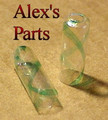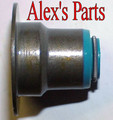 Loading... Please wait...
Loading... Please wait...Categories
- CLOSE OUT CLEARANCE, BLOW OUT SALE ITEMS
- Rebuildable Engine Blocks, Block Cores
- Add on payment, Special Item Order Option
- AMC
- BEARINGS, ROD & MAINS
- BUICK
- CADILLAC
- CAM BUTTONS & LOCK PLATES
- CHEVY BB, GEN 4, MARK IV
- CHEVY BIG BLOCK, GEN 5
- CHEVY VORTEC, V6 4.3
- CHEVY, BIG BLOCK, GEN 6/7
- CHEVY, LS SERIES, Gen III, Vortec, LS1, 3, 6, L92
- CHEVY, LT1, GEN II SBC
- CHEVY, GM GEN V/5, LT1, LT4
- CHEVY SMALL BLOCK GEN I
- CHEVY, VORTEC, 5.7 IRON CASTINGS, GEN II
- CHRYSLER, SMALL BLOCK 273-360
- CHRYSLER, BIG BLOCK, 383-440
- FORD, SMALL BLOCK, 289
- FORD, SMALL BLOCK 302 HO w/ E7, GT40P & GT40
- FORD, SMALL BLOCK, 302, 1969-85
- FORD SMALL BLOCK, 351W
- FORD 351 CLEVELAND
- FORD, FE 352, 360, 390, 410, 427, 428
- FORD, BIG BLOCK, 429-460
- FORD, 4.6, 5.4, 16 Valve
- FORD, 2.3, 140 4 Cylinder
- FORD 6.0 DIESEL
- FORD 6.9/7.4 DIESEL, IDI, POWERSTROKE
- FORD 351/400M
- FORD, BOSS 302
- FORD 239, 256, 262, 272, 292, 312 "Y" BLOCK
- FREEZE PLUGS, EXPANSION PLUGS
- GASKET SEALERS
- GUIDE PLATES, PUSHROD
- HARDWARE, ENGINE
- HARLEY DAVIDSON
- HEAD TO BLOCK DOWELS
- HEADS, NEW STOCK REPLACEMENT
- HEADS, PERFORMANCE
- IHC, INTERNATIONAL 6.9/7.3
- OLDSMOBILE, V8
- PONTIAC 455
- PONTIAC, 326-400
- PUSHRODS- OE Replacement Type
- PUSHRODS- Single Piece Hi-Perf Chromoly
- REAR MAIN SEALS
- PUSHROD LENGTH CHECKER TOOLS
- RETAINER & LOCK KIT
- RETAINERS, VALVE SPRING
- RING SETS
- ROCKER ARM PARTS, ALIGNMENT GUIDE, FULCRUM
- ROCKER STUD & GUIDE PLATE KITS
- ROCKER STUD, GUIDEPLATE & PUSHROD KITS
- STUDS, ROCKER ARM
- TOOLS, ENGINE ASSEMBLY TOOLS
- ROLLER ROCKERS
- VALVE GUIDES
- VALVE LOCKS (KEEPERS)
- VALVE SEAL FITTING SLEEVES
- VALVE SEALS 11/32"
- VALVE SEALS 3/8"
- VALVE SEALS 5.5mm
- VALVE SEALS 8mm & 5/16"
- VALVE SEALS, 5MM
- VALVE SEALS, 7mm
- VALVE SEALS, MOTORCYCLE
- VALVE SEATS
- VALVE SEATS- IMPORTS
- VALVE SPRING SHIMS
- VALVE SPRING CUPS
- VALVE SPRING LOCATORS
- VALVE SPRING KITS
- VALVE SPRING KITS WITH STAINLESS VALVES
- VALVE SPRINGS
- VALVES, STAINLESS STEEL
- WATER BYPASS TUBES
Popular Brands
Become a member
- Home
- VALVE SEALS 8mm & 5/16"
- VALVE SEALS, 5/16" & 8MM POSITIVE TYPE
VALVE SEALS, 5/16" & 8MM POSITIVE TYPE
Positive Seals are designed to press on to the valve guide. As the valve opens and closes, the seal wipes oil from the valve stem. Positive valve seals are designed to "meter" oil as valve/guides need a certain amount of lubrication to resist wear and possibly failure. Positive seals are the most efficient type of seal in use today.

FIXED BODY verses FLEX BODY SEALS: Positive seals are available to fit many guide diameters. Fixed body seals are intended to fit specific diameters while Flex body seals are designed to stretch over a wide range of guide diameters.
Fixed body seals come in common sizes such as: .562", .530", .500" etc. Most machine shops have special cutters to machine factory guides to one of these diameters. Normally the guide is machined to the first size which will fully clean up from the machining process.
THIN WALL seals are part of the fixed body seal family. These seals are intended for applications where additional clearance between seal body and inner spring are needed. A typlical application to use thin wall seals would be a triple spring with a small inner diameter. We do not recommend using thin wall seals in applications where regular fixed body seals would fit as they are more difficult to install.
The OEM's started using positive seals in the 80's. Earlier heads used other types of seals so their guides are not usually machined to accept positive seals. To take advantage of modern valve guide seal technology, early heads require retro fit machining.
For the "do it yourself" builder, valve guide cutters are readily available. Valve guides can be machined on the bench using a common slow RPM 1/2" drill. It can not be done with the heads on the car. It is usually done along with other head rebuilding procedures such as a valve job. Alex's Parts offers guide cutters in all three popular sizes. .562", .530" and .500".
SEAL MATERIALS: Positive seals are manufactured from many different rubber materials, each with their own temperature rating. The higher the temp rating, the longer the seal will resist hardening. Street engines which are not taken apart for regular freshen ups, normally use seals with the highest temp rating. Race engines can use seals with lower temp ratings because they will be replaced before they can harden.
We carry: VITON & POLY ACRYLIC FIXED BODY SEALS.
TEMP RATING:
- Viton- 450 degrees
- Poly Acrylic- 350 degree
- Nitrile- 250 degree






